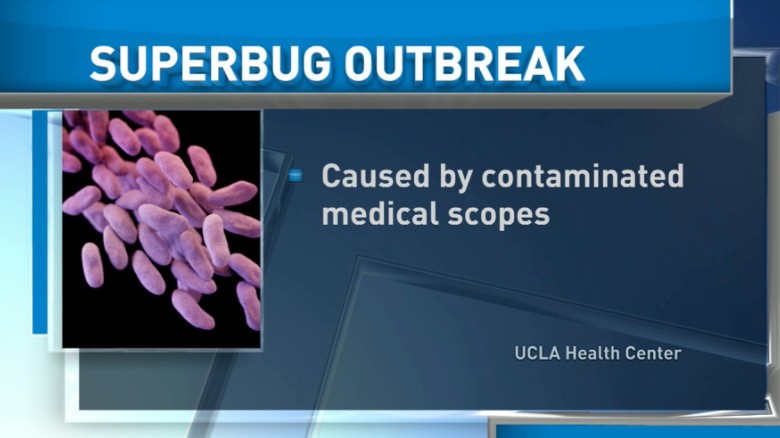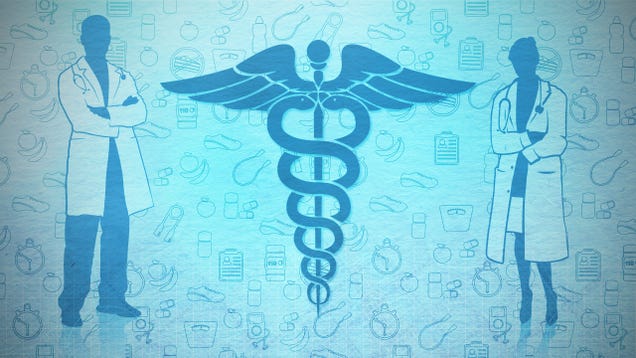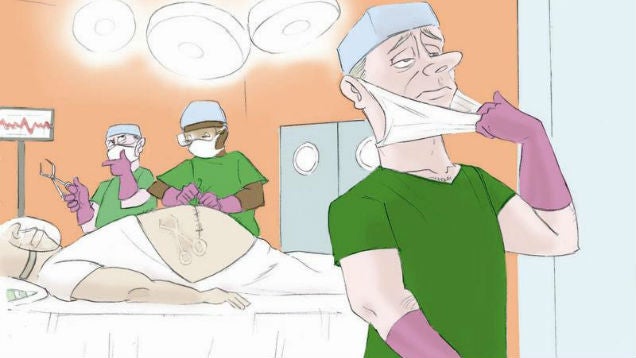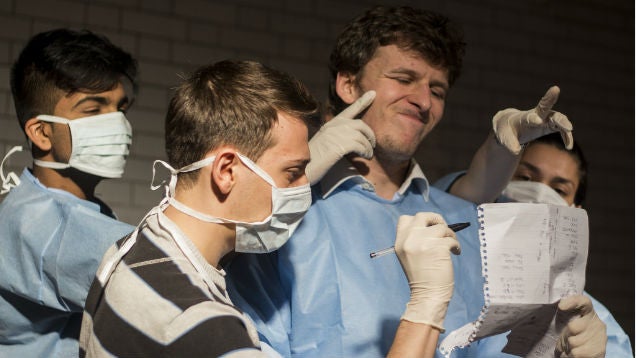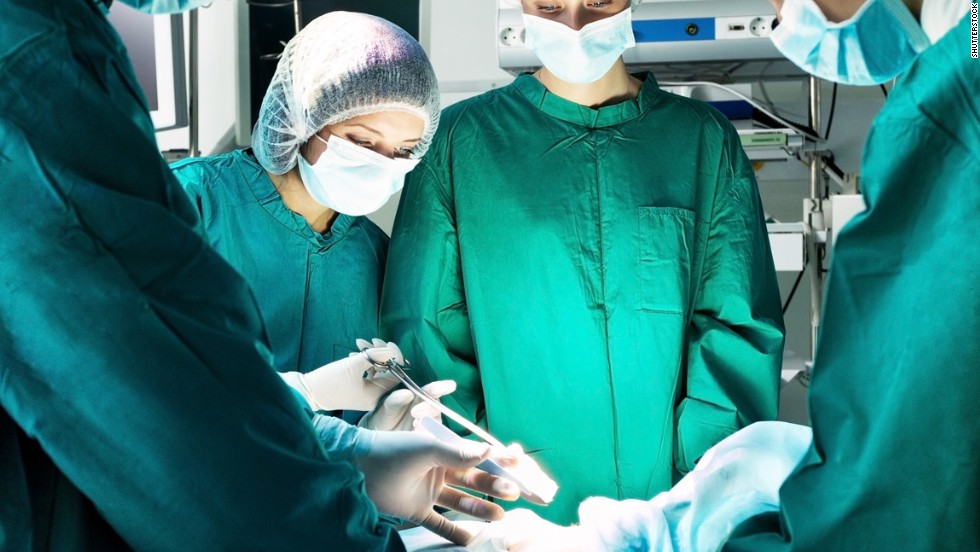Despite the many benefits of having information at your fingertips, smartphones and tablets can do damage to your body and
overall health in unexpected ways.
 You may not realize it, but all that time spent with your head down
You may not realize it, but all that time spent with your head down
checking email and texting may be creating more than a social gap — you
may also be harming your spine. Research suggests that spinal pressure
actually doubles with each inch you bend your head down.
Smartphone users spend an average of two to four hours per day
hunched over, says Kenneth Hansraj, chief of spine surgery at New York
Spine Surgery & Rehabilitation Medicine, in his recent report for
Surgical Technology International. As a result, back and neck pain have
increased among users of electronic gadgets, and the effects may linger
for years.
"Poor posture is easy to spot in the hunched over forms of older
adults who have carried bad habits for a lifetime," said Stephen
Gubernick, Doctor of Chiropractic at The Joint Chiropractic. "However,
few people realize that there are health implications that make good
posture essential for healthy living at any age."
Dr. Gubernick explained that a misalignment of your spine can affect
your overall health and well-being. Your spine protects your nervous
system, which controls and coordinates all the different functions of
your body. Any disruption in nerve communication to your organs and
tissues may result in abnormal function. "There are countless benefits
from simply improving the alignment of the spine," he added.
Poor posture negatively impacts your muscles and ligaments, as well
as your spine, which can lead to a host of health problems ranging from
neck and back pain to gastrointestinal problems and even hyperkyphosis —
a condition in which the spine curvature is significantly exaggerated,
with increased risk of pulmonary and arterial health problems.
When posture or other factors cause a misalignment, a spinal
adjustment is one way to help restore normal nerve function and
communication, thereby allowing your body to work normally and
naturally.
In addition to recommending exercises that strengthen your core
postural muscles in an effort to sustain and improve posture, a
chiropractor can also assist you with identifying proper posture
techniques to use during daily activities that help reduce the risk of
injury.
Why Posture Matters
There are many benefits to practicing good posture. According to the
American Chiropractic Association, keeping your spine aligned properly:
Ditching your smartphone probably isn't a practical solution for
improving your posture, so instead work to keep your posture in check
with these tips:
overall health in unexpected ways.
 You may not realize it, but all that time spent with your head down
You may not realize it, but all that time spent with your head down checking email and texting may be creating more than a social gap — you
may also be harming your spine. Research suggests that spinal pressure
actually doubles with each inch you bend your head down.
Smartphone users spend an average of two to four hours per day
hunched over, says Kenneth Hansraj, chief of spine surgery at New York
Spine Surgery & Rehabilitation Medicine, in his recent report for
Surgical Technology International. As a result, back and neck pain have
increased among users of electronic gadgets, and the effects may linger
for years.
"Poor posture is easy to spot in the hunched over forms of older
adults who have carried bad habits for a lifetime," said Stephen
Gubernick, Doctor of Chiropractic at The Joint Chiropractic. "However,
few people realize that there are health implications that make good
posture essential for healthy living at any age."
Dr. Gubernick explained that a misalignment of your spine can affect
your overall health and well-being. Your spine protects your nervous
system, which controls and coordinates all the different functions of
your body. Any disruption in nerve communication to your organs and
tissues may result in abnormal function. "There are countless benefits
from simply improving the alignment of the spine," he added.
Poor posture negatively impacts your muscles and ligaments, as well
as your spine, which can lead to a host of health problems ranging from
neck and back pain to gastrointestinal problems and even hyperkyphosis —
a condition in which the spine curvature is significantly exaggerated,
with increased risk of pulmonary and arterial health problems.
When posture or other factors cause a misalignment, a spinal
adjustment is one way to help restore normal nerve function and
communication, thereby allowing your body to work normally and
naturally.
In addition to recommending exercises that strengthen your core
postural muscles in an effort to sustain and improve posture, a
chiropractor can also assist you with identifying proper posture
techniques to use during daily activities that help reduce the risk of
injury.
Why Posture Matters
There are many benefits to practicing good posture. According to the
American Chiropractic Association, keeping your spine aligned properly:
- Ensures bones and joints are correctly aligned. This helps the
muscles to be used properly, diminishing the abnormal wear which can
cause degenerative arthritis and joint pain. - Places less stress on the ligaments which link the spinal joints, decreasing the chance of injury.
- Creates efficiency within the muscle groups, helping the body use less energy and avoid fatigue.
- Reduces the likelihood of back and muscular pain, overuse disorders and muscle strain.
Ditching your smartphone probably isn't a practical solution for
improving your posture, so instead work to keep your posture in check
with these tips:
- To protect your posture while using your phone and other electronic
devices, avoid angling your head down for prolonged periods. Raise the
device closer to eye level, or use a stand to prop the screen. - Treat back and neck pain, which may signal a posture problem or
worsen poor posture habits, with regular chiropractic adjustments to
keep your body balanced and flexible. - When sitting, avoid crossing your legs and keep your knees at or
below hip level. Use a back pillow to support your lower and middle
back. Relax your shoulders and avoid sitting in the same position for
extended periods of time. - While standing, keep your feet shoulder width apart and your knees
slightly bent. Stand straight with your shoulders pulled back and your
stomach tucked in.
Source:
Family Features Editorial Syndicate
